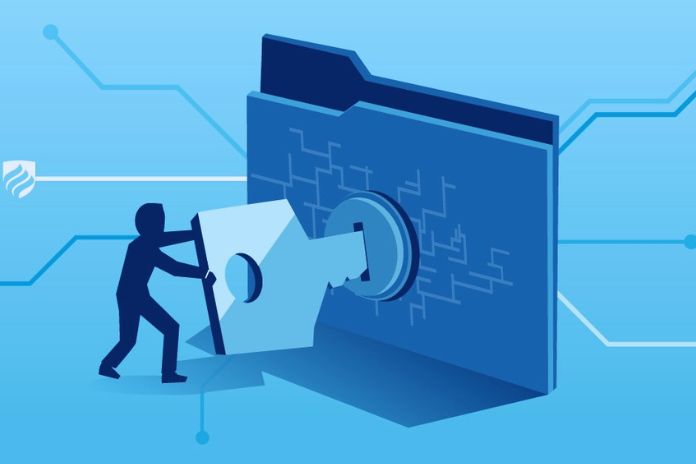Today, most corporations’ confidential and vital data is stored digitally, which demands extra doses of concern. Therefore, information security is more than strategic; it is essential to protect this data, which is critical to keep business activities unharmed.
We know that any security breach can leave gaps for possible intrusions. Therefore, security can shield the system against digital attacks, human errors, and technological bugs when properly used. Consequently, managers must understand its fundamental importance and the techniques and tools available to assist in this task.
Stay with us and stay on top of the concept, advantages, pillars, and other relevant information on this vital subject for protecting company data.
What Is Information Security?
It is a set of actions designed to protect data and its value at the personal level and in corporate organizations. It is worth mentioning that IS (Information Security) is not restricted to communication systems but extends to all other aspects related to data protection.
It is through information security that the integrity, availability, and confidentiality of everything the company keeps is guaranteed. And this is done through people and processes that detect, prevent, and respond to digital threats.
How Do Information Security Processes Occur In Companies?
The methods used to protect information security in companies rely on logical controls that limit access to files and virtual or physical environments, such as those listed below:
- Digital signature;
- Cryptography;
- Access control, such as access cards, passwords, and biometric systems;
- Checking mechanisms, such as captcha;
- Security protocols;
- Digital certificates.
Main Advantages Of Carrying Out Corporate Information Security
We list below some advantages that go beyond the protection of company data:
Availability And Reliability
When data is secure, the system becomes more reliable. This observation has already been made by numerous enterprises that invested in information security and managed to keep their processes more stable.
In addition, they ensured greater ease of information and sensitive data and the ability to establish remote work with total access control, editing, and viewing of files safely for the company.
Strategic Adjustments
Well-monitored information security can serve as a tool for IT management and facilitating employees’ work. With competent monitoring, the prevention strategy becomes better. Thus, the response to threats is faster. This also serves as a basis for adopting a continuous improvement process, such as the PDCA.
Increased Productivity
Unquestionably, information security can also be responsible for greater productivity. And we know that this is the primary motivator for optimizing work within an organization.
Effective system monitoring has the power to ensure fewer weaknesses, and that means less maintenance or virtual disaster repairs. Access control is also helpful in curbing inappropriate use of the internet by employees. This chain directly interferes with the time saved harmful interference.
Cost Reduction
The result is more savings with process simplification, increased productivity, and extra available system time. In addition, the saved financial resources can be reallocated into the information security structure by acquiring new equipment and hiring specialized companies.
IT And Information Security Processes
An IT department equipped to guarantee your company’s information security is recommended, even more so with the various tools available to shield your system against virtual attacks and other problems. Furthermore, these tools can maintain the confidentiality and integrity of information, which is the main objective of corporations.
Information security, therefore, can only be guaranteed from the moment that IT professionals and users join efforts to put into practice the best ways to avoid risks and protect data.
Pillars If Information Security
Confidentiality
It guarantees that the information will only be accessed by authorized people, which is fundamental for any company since its information constitutes assets built over time, with a lot of energy and work. And, when leaked, they deliver a competitive advantage to the competition.
Integrity
Information integrity protects the organization from miscommunications, which could result in rework, losses, and wasted time. This attribute ensures the maintenance of the characteristics of the information as defined by the owner, even if there is an authorization for its manipulation. Therefore, there is control over the life cycle and information changes.
Availability
Availability keeps business activities moving, preventing stagnation. With this pillar, the company has the guarantee of information for legitimate use. It must always be available to everyone with authorized access, defined by its owner. With this, business flows and protects the organization from losses from an eventual impossibility of access.
Authenticity
This attribute protects the information belonging to the advertised source against possible modifications during a given process. Authenticity also guarantees that the sender of the information cannot evade its message or authorship.
Conclusion
There is no way to stop working with technological tools in an increasingly digital world. However, it is necessary to take the required information security measures to keep the data well-monitored. Remember that good practices directly impact positive business performance, which can mean your competitive advantage in the market.
ALSO READ: The Evolution Of Cyber Threats, New Growing Scenarios


